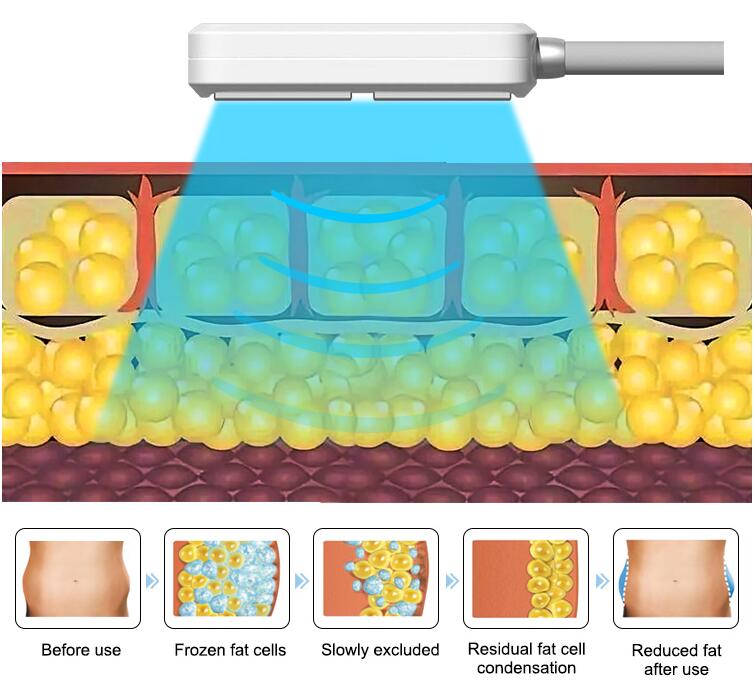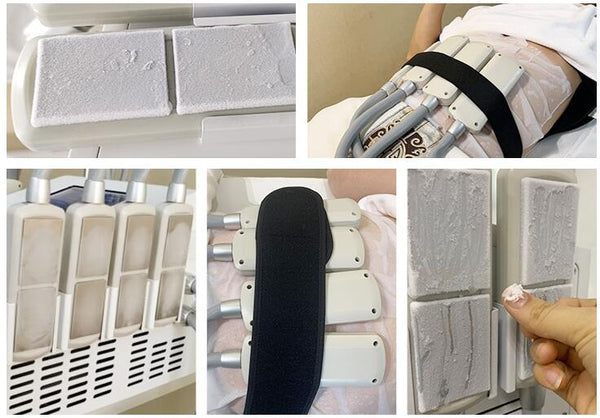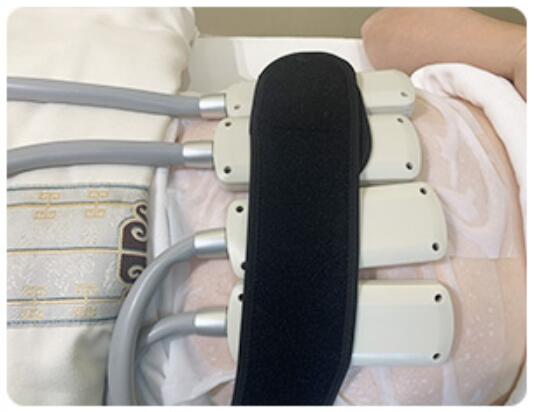Are you looking for a way to reduce fat without exercise or surgery? If so, then you might be interested in learning more about the popular method of placing ice on your belly. This practice has become increasingly popular as people look for ways to slim down and get better body shape without putting too much time and effort into it. In this blog post we'll explore whether there is any evidence that applying an ice pack on your stomach can indeed help #reducefat, what kind of precautions one must take when doing this, and how effective it really is. Read on to find out more!
Understanding the science behind fat reduction
Losing weight can be a challenging and overwhelming task. However, understanding the science behind #fatreduction can help you make informed and effective decisions when it comes to your weight loss journey. When you consume food,your body breaks it down into glucose,which your cells use for energy. Any excess glucose that your body doesn't need is stored as fat. To reduce fat, you need to create a calorie deficit. This means consuming fewer calories than you burn through daily activities and exercise. Additionally, incorporating strength training into your routine can help you build lean muscle, which helps burn more calories even at rest. Truly understanding the science behind fat reduction can empower you to take control of your health and achieve your #weightloss goals.

Exploring the benefits of putting ice on your belly to reduce fat
Putting ice on your belly to reduce fat might sound like a bizarre idea , but it's actually a technique that many people swear by. The theory behind it is that the cold temperature of the ice causes your body to work harder to stay warm, which in turn burns more calories. Not only that, but applying ice directly to your belly can also help to increase blood flow and reduce inflammation. While it's important to note that there's no quick fix when it comes to weight loss and getting in shape, this technique can be a helpful tool to add to your overall health and fitness routine. So why not give it a try? Your belly (and your body) might thank you for it.

Factors to consider when using cold therapy for fat loss
When it comes to #fatloss, many people turn to #coldtherapy as a way to speed up the process. However, there are certain factors that need to be considered before indulging in this type of treatment. Firstly, the duration of cold therapy needs to be taken into account. While prolonged exposure to cold temperatures can help burn fat, it can also damage the skin and other tissues. Secondly, it's important to consider the type of cold therapy being used. Ice baths, for example, may not be suitable for everyone and could lead to negative side effects such as hypothermia. Additionally, it's crucial to maintain a balanced diet and exercise regularly while undergoing cold therapy, as it's not a standalone solution for fat loss. By considering these factors,you can reap the benefits of cold therapy while minimizing any potential risks.
Important health and safety considerations when using cold therapy for fat loss
When it comes to losing fat, cold therapy can be an effective and non-invasive option. However, it's important to keep in mind the potential health and safety considerations. First and foremost, make sure to use the cold therapy device properly and according to the instructions . Use caution to avoid frostbite or other skin damage by not applying the device directly to bare skin for too long. Additionally, be aware of any pre-existing #health conditions that may make cold therapy unsafe, such as circulatory issues. As with any new health regimen, it's always wise to check with a healthcare professional before starting. With these considerations in mind, cold therapy can be a safe and effective tool in your journey towards fat loss.

Different types of cold therapies that can be used for fat loss
Fat loss is a challenging journey that requires dedication, discipline, and the right tools. One of these tools is cold therapy, which can help you achieve your desired results. There are different types of cold therapies that you can use, such as cryotherapy, cold showers, and ice baths. #Cryotherapy involves exposing your body to extremely cold temperatures for short periods, while cold showers and ice baths require immersing yourself in cold water for a certain amount of time. These therapies can help boost your metabolism, reduce inflammation, and activate your body's brown fat cells, leading to increased fat loss. While they may not be for everyone, incorporating cold therapies into your weight loss routine may be worth considering!#cryoskintherapy
Tips and tricks to make your cold therapy experience more effective
Cold therapy is a popular remedy for reducing pain and inflammation in the body. However, the effectiveness of this treatment depends on a few factors. To make your cold therapy experience more effective, try immersing the affected area in cold water after applying ice packs. This can help to increase blood flow and reduce swelling. Additionally, make sure to wrap your ice pack in a towel or cloth to prevent skin damage. You can also try using cold therapy in combination with other pain management techniques, such as stretching or massage. By following these tips and tricks, you can make the most out of your cold therapy treatment and experience faster relief from pain and inflammation.#cryoskin
From all of our research into cold therapy for fat loss, it is clear that this approach may offer some positive potential for those looking to lose a few kilograms. Of course, it is important to understand the science behind why cold therapies can work and how your body responds to them. Whether you choose to use an ice pack or attend a cryotherapy session, there are key safety tips and factors to consider when pursuing cold therapy as a fat loss strategy. If you are attentive to all of these precautions and do your part in monitoring your diet and exercise program, cold therapy can potentially help you achieve the fat reduction results you’re after. Ultimately, when determining if this method might be right for you, staying informed and tuning into what your body needs will be invaluable in maintaining a successful weight loss plan.

